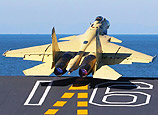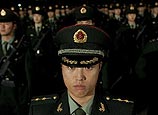
In October, shares of Chinese mainland companies listed in Hong Kong, known as H shares, jumped 7.6 percent to easily outpace other regional benchmarks.
"I think most fund managers are looking at the fundamental mismatch in their portfolio between their direct exposure to China and the role China plays in the global economy, often very little versus one hell of a lot," said Michael McCormack, executive director at China-focused fund consulting firm Z-Ben Advisors. "Investors are now trying to rebalance that."
One attraction is valuations. The MSCI China index, the most popular benchmark for China funds, has consistently under-performed Asian markets over the past two years, following a stellar run where it nearly tripled in value between October 2008 and November 2010.
The index trades on a forward price-to-earnings multiple of 9.2, cheaper than Brazil on 9.9 and India on 13.2, and a lure to investors hoping to get in early on another substantial upswing. The H shares are at price-to-book ratios around four times lower than in 2007, according to Thomson Reuters data.
Those valuations and signs the economy is improving - Thursday's flash purchasing managers' index (PMI) reading showed the first expansion in manufacturing in 13 months - have piqued interest, and it seems investors are worried about missing out on riding the recovery.
Data from fund-flow tracker EPFR Global shows inflows into China equity funds accounted closed in on US$4 billion over the 10 weeks to mid-November, and accounted for more than half of the flows in Asia ex-Japan funds in the week to November 15.
"It has bottomed out and found a new level, so people don't want to be negative about China anymore," said Stuart Rae, chief investment officer of Pacific Basin Value Equities at AllianceBernstein.
















 Bullet train attendants receive trainings in China's Shenyang
Bullet train attendants receive trainings in China's Shenyang


![]()
